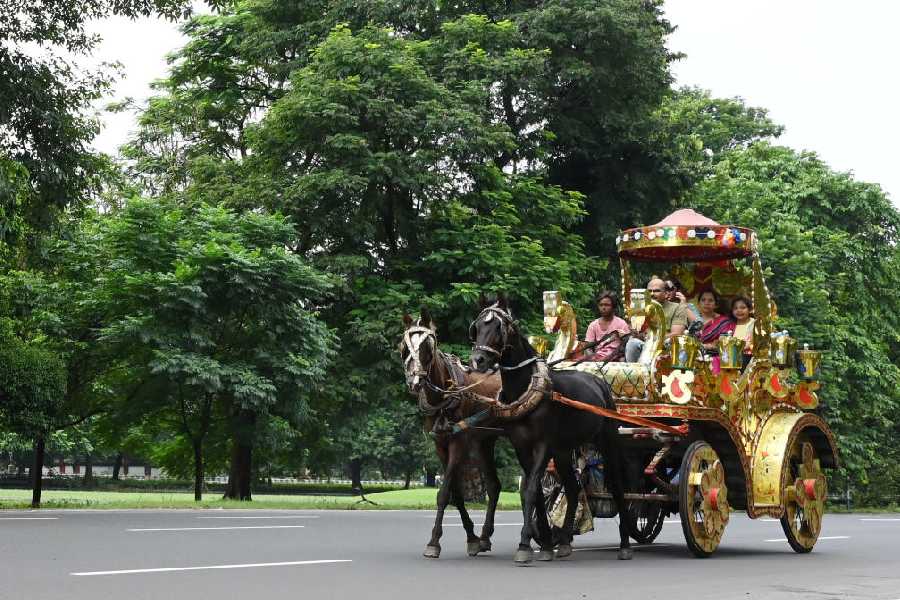Kolkata Police have put a stop to horse carriages operating in the Maidan area in the afternoon to spare the ill-fed and often ailing animals the assault of the heat.
The police said they had asked the horse carriage operators to run only in the evening when the weather is a bit more tolerable.
It has been less than a week since the new system was put in place.
The colourful phaetons carrying people around the Maidan greens and past the Victoria Memorial is an abiding Calcutta portrait.
But given the health of many of the horses that draw these carriages and their lack of nourishment, many feel they should be off the roads when the weather conditions are extreme.
“We were told by Hastings police station not to take out the horses during the afternoon because of the heat. All horses are being given rest in the afternoon. We are setting up the carriage only in the evening,” said carriage driver Mohammad Chotu.
There were others who echoed him and said the horses were anyway becoming “restless” if they were made to stand in the sun for long hours.
Usually, more than two dozen phaetons line up along Queensway in front of the Victoria Memorial in the morning waiting for visitors.
They are now arriving at the spot late in the afternoon.
The Telegraph found the stretch empty around Thursday noon. The carriages started setting up around 3pm. The horses arrived after 5pm.
These privately owned horses stay in the Hastings area. A handful are brought to the Maidan during the day to graze.
Mounted police veterinary officer Surajit Basu said prolonged exposure to heat causes dehydration and metabolic problems in horses.
“They start panting and suffer from dehydration. Metabolic problems arise and prolonged exposure to heat can even lead to a heat stroke,” said Basu, who takes care of the health of the entire fleet of the city's mounted police horses.
Several horse deaths have been reported in the Maidan over the past few weeks.
According to officials of Cape Foundation, an organisation working for the protection and welfare of animals, there are several incidents of cruelty towards horses in the Maidan and other pockets of the city.
“We have lost so many horses in the last few weeks in Calcutta just because they are malnourished, kept in unhygienic conditions and suffered heat stroke under the sun,” said Radhika Bose, managing trustee, Cape Foundation.
Bose said that according to rules for the prevention of cruelty to draught and pack animals, animal-drawn carriages can be operational not more than five hours at a stretch and up to nine hours through the entire day.
“The rules also say animal-driven carriages cannot be operational if the temperature exceeds 37 degrees between noon and 3pm,” she said.
Calcutta has witnessed three heat waves this summer with the daytime temperature often breaching the 40-degree mark or hovering around it.
Bose said she had written to Kolkata Police a few days ago when she saw a carriage being driven by two horses near the Maidan around 12.30 in the afternoon. She said a PIL seeking a ban on the use of horse-drawn carriages was pending in the high court.
The police said the move (to shift the phaeton operations to evening) was based on feedback from organisations that work for animals and for keeping the horses safe when the weather outside is uncomfortable.

